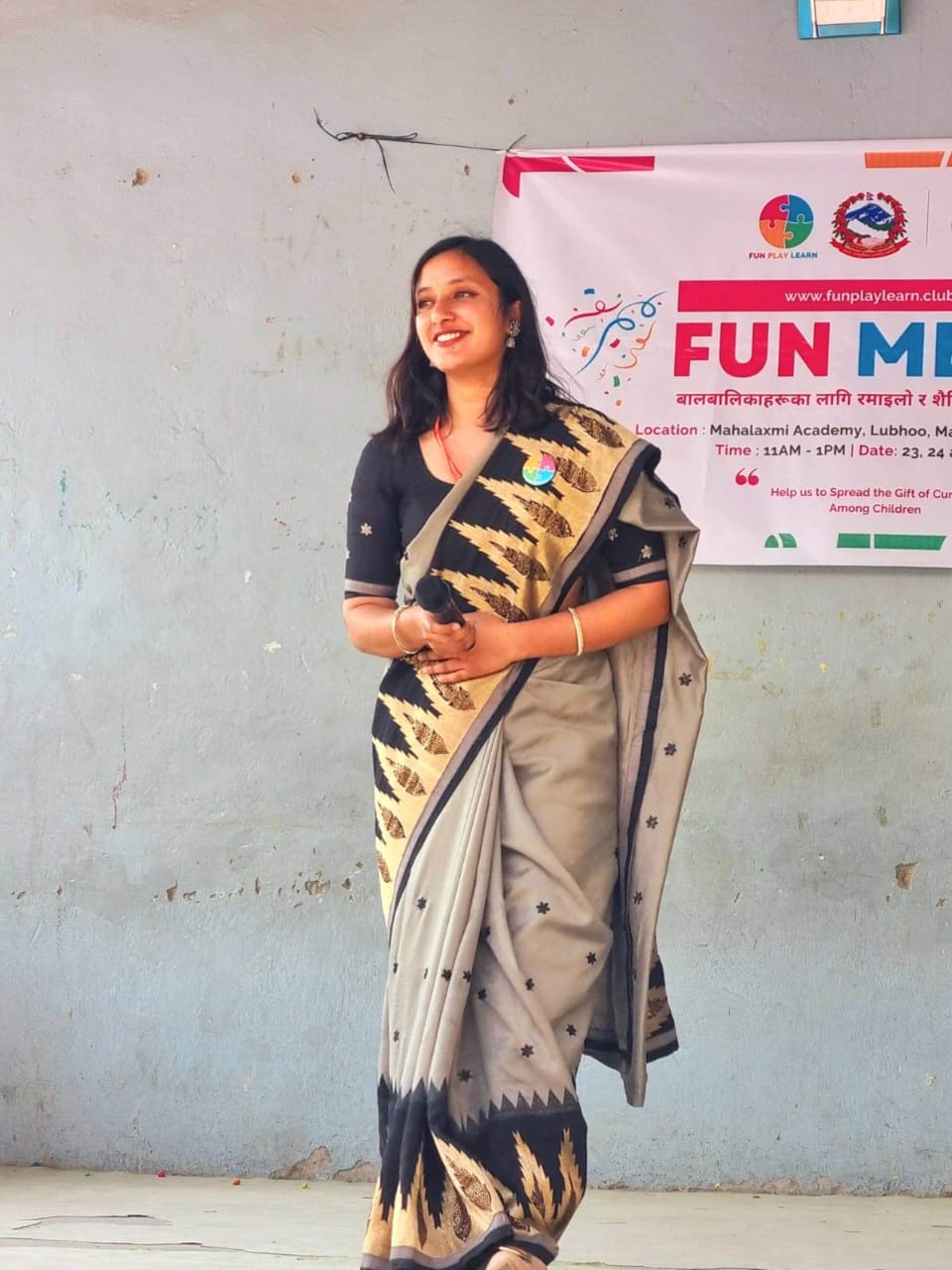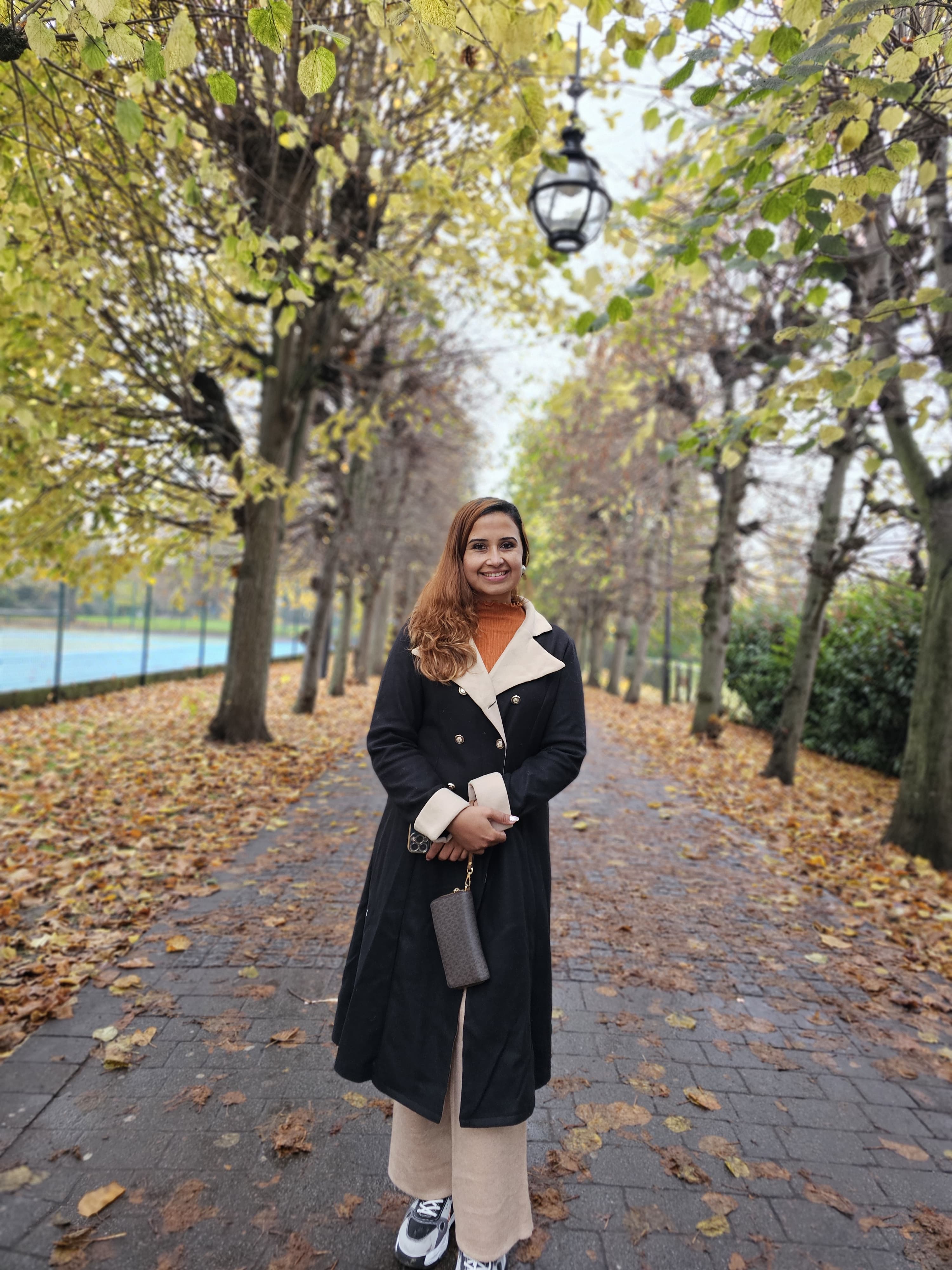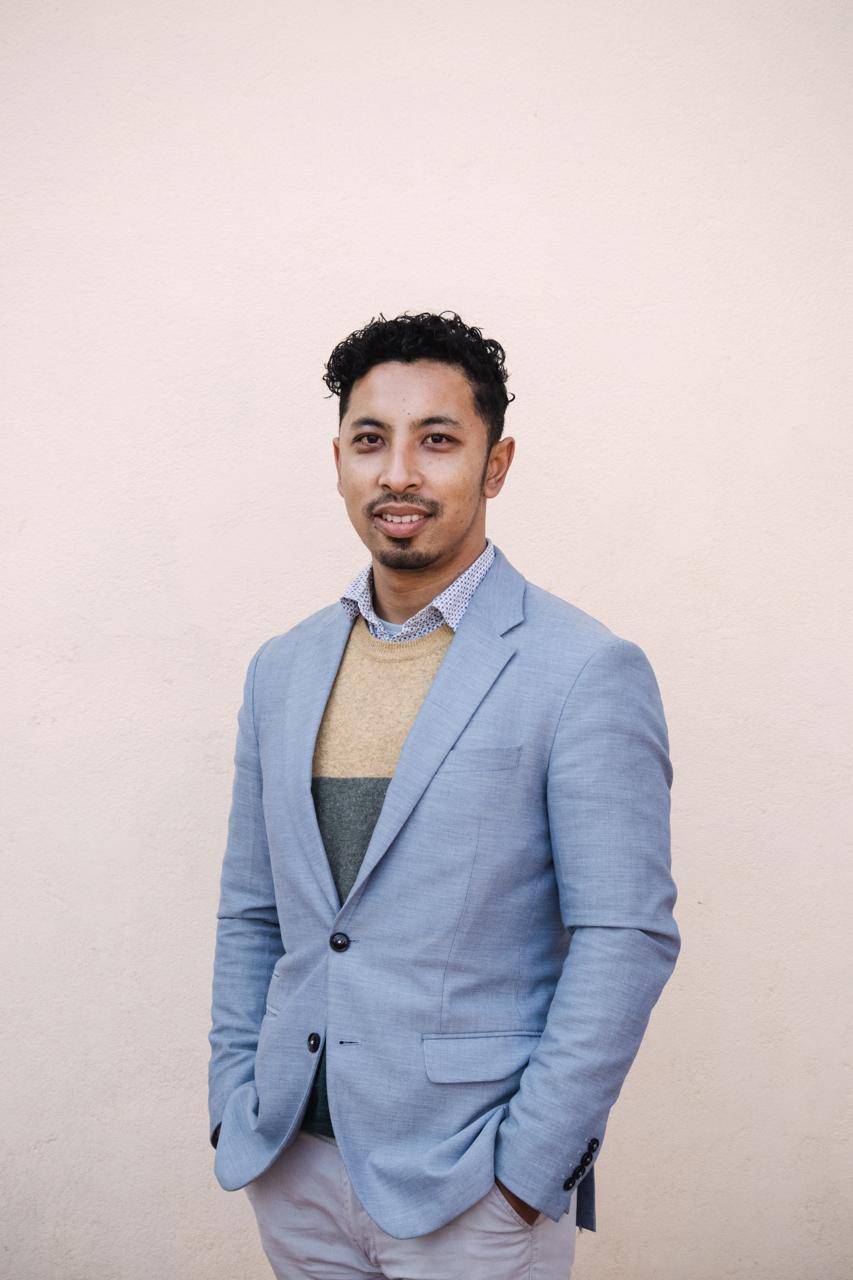About us
At Fun Play Learn, we turn classrooms into places of joy, wonder, and possibility.
Through simple, playful games, our volunteers help children in low-income schools strengthen not just English and math — but also the skills that are often left out: problem-solving, communication, spatial awareness, and confidence.
Our team visits schools weekly, running 40-minute game-based learning sessions that are designed around Nepal’s national curriculum. Sessions are led by local fellows and trained volunteers who follow a structured model: they prepare, play, reflect, and improve — with children and with each other.
We currently work in under-resourced communities within urban areas, with a vision to grow into rural regions across Nepal. Built on a decentralized, low-cost model that empowers local leaders, Fun Play Learn is making learning joyful, one game at a time.
Prep Session
Our volunteers and fellows gather materials,review the QC checklist, review the plan, and go over any questions or stories for the day. We also conduct a short mock session—especially when new Funmakers join—to build confidence and ensure everyone is ready.
First Session
We begin with quick, playful energizers—like Simon Says—to get the children moving and refreshed after classroom time. Within the next 5–8 minutes, we transition into the main activity by telling a related story, forming groups, and handing out materials. Over the next 15–20 minutes, the children build their game toy or complete a basic version of the game, giving them time to experiment and explore. We end by collecting their work and materials, followed by one last fun game to wrap up the session and say goodbye with smiles.
Mid session
After the first session, we take 5–15 minutes to quickly reflect on what went well and what needs adjustment. This helps us identify small mistakes, refine our approach, and emphasize what worked—so the second session can run even more smoothly and effectively.
Second session
This is an identical 40 minute session to the first session with a different group of children and the improvements discussed in the mid-session.some schools only have one session if there arent many children there .
End Session
This is the closing review of the day, where we reflect on both sessions in detail—discussing what went well, what could improve, and any key observations. We prepare a thorough report to upload to the website, then wrap up by cleaning the space and heading home.
Our core values

Data driven approach
At FunPlayLearn, every single hour spent with children is carefully documented and analyzed. For each session, we collect detailed data on the number of children who participated, the games played, what worked well, and what challenges emerged. This is complemented by photos and videos, ensuring that every insight is grounded in real observations. Our fellows and volunteers use structured forms to log feedback, flag issues, and suggest improvements—allowing us to adapt quickly, replicate successful practices, and continuously refine our approach.Learn More →

Cost and Quality
At FunPlayLearn, quality is non-negotiable. Every session must strictly follow our QC checklist, with photos, videos, and forms ensuring that standards are consistently met. Only sessions that meet these criteria are officially counted. Despite our decentralized model, we maintain tight oversight—each child’s learning experience matters. And we do all this at just Rs. 25 per child per session per week, ensuring high impact at remarkably low cost.Learn More →

Reach and Scale
With over 200 schools and colleges engaged, FunPlayLearn has built a vibrant, growing network of partners who believe in playful, purposeful learning. Together, we’ve delivered more than 10,000 child-hours of hands-on, game-based education—each one carefully planned, documented, and improved upon. This scale isn’t just a number; it reflects the trust we’ve earned and the depth of experience that guides everything we do.Learn More →
Why We Use Games — and How We Choose Them
At Fun Play Learn, we believe that play is one of the most natural and powerful ways children learn. That's why our entire approach revolves around simple, joyful games that make learning feel like discovery — not instruction.
Every game we use goes through a thoughtful selection process. First and foremost, it has to be genuinely fun — if children are not engaged, the learning doesn’t stick. But fun alone isn’t enough. Each game must also support the core academic skills outlined in Nepal’s Grade 1–3 curriculum — especially in English and math — or help develop crucial non-academic abilities like problem-solving, spatial thinking, communication, and collaboration.
Because we aim to keep our cost per child under Rs. 5, materials must be affordable and locally sourced. We prioritize games that can be played in groups, require minimal supervision, and can be adapted in difficulty so every child — whether struggling or ahead — feels challenged and supported.
Our philosophy is simple: a well-chosen game can do more than teach a lesson — it can spark confidence, build community, and make school a place children look forward to each week.
Learn More →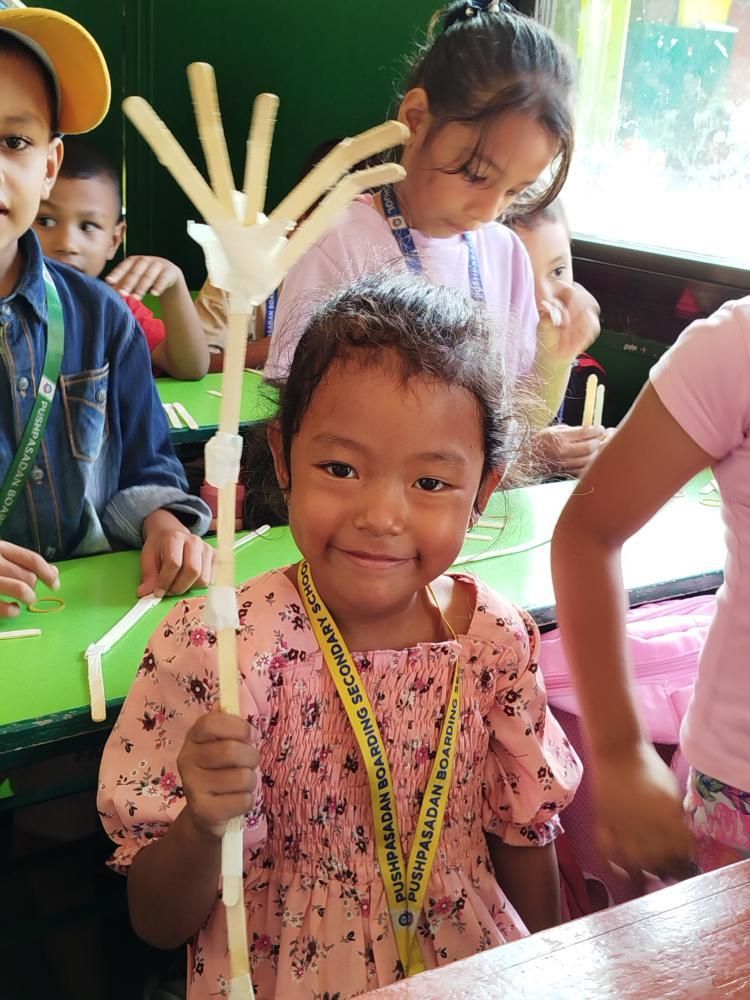
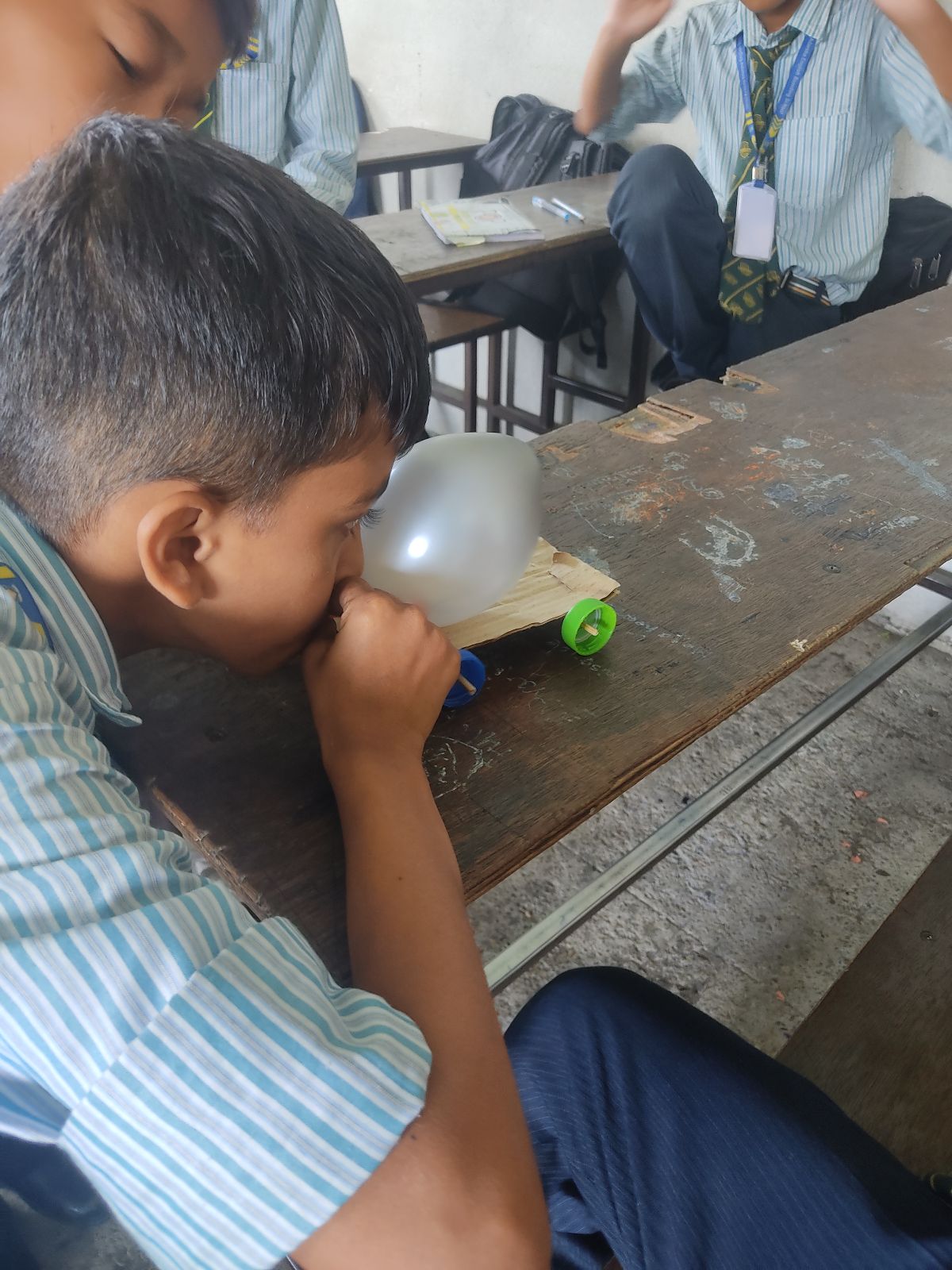
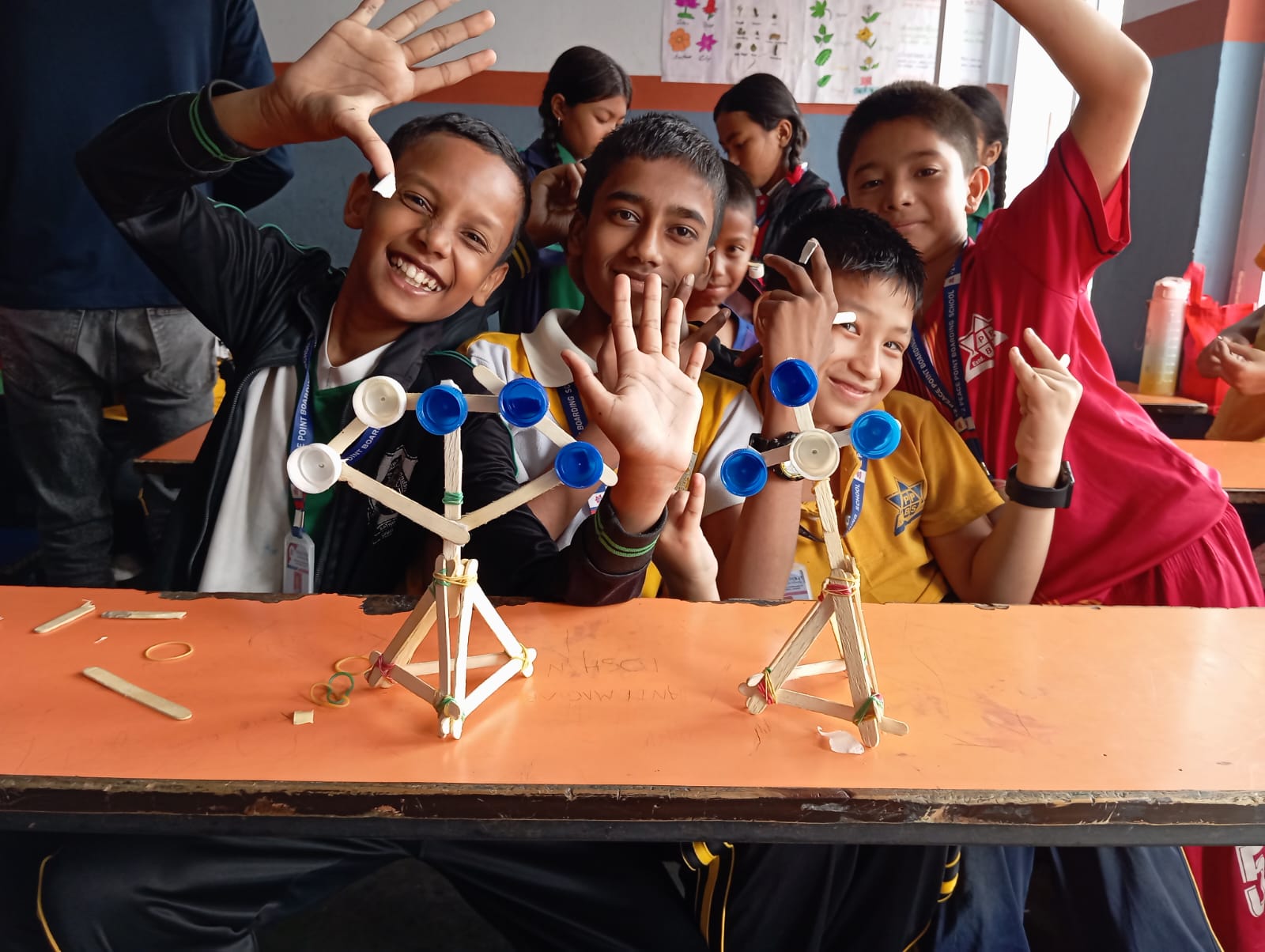
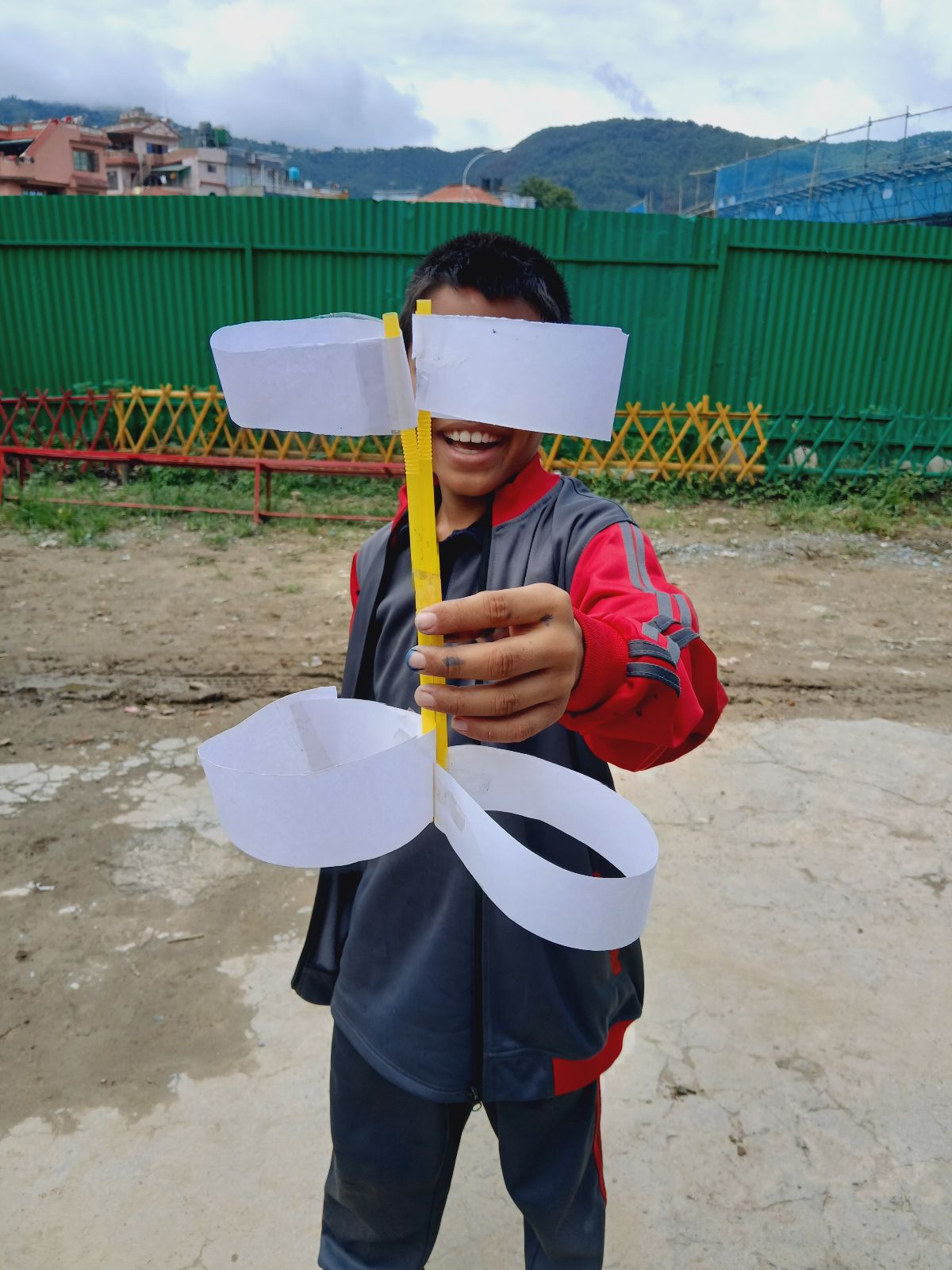
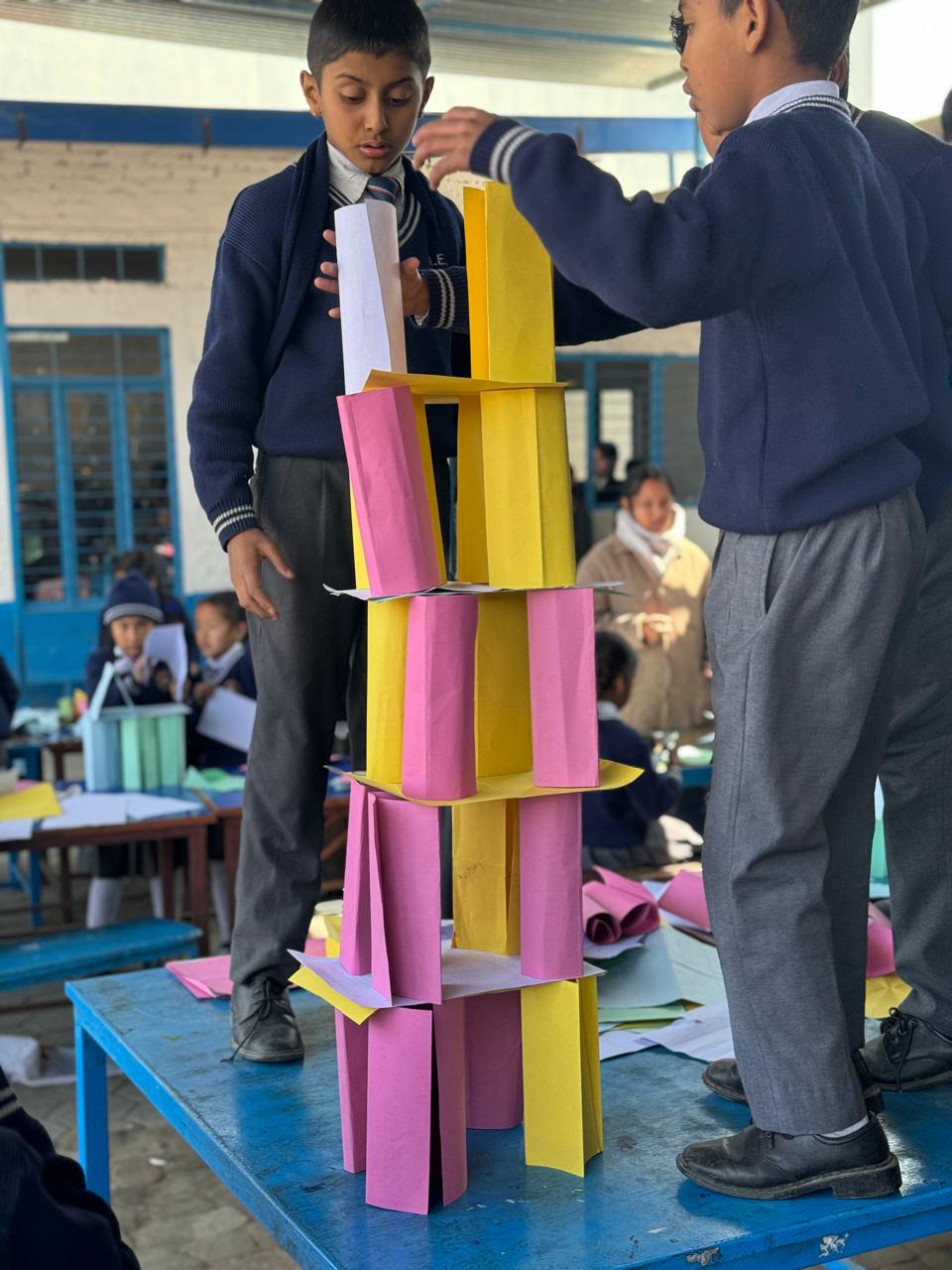
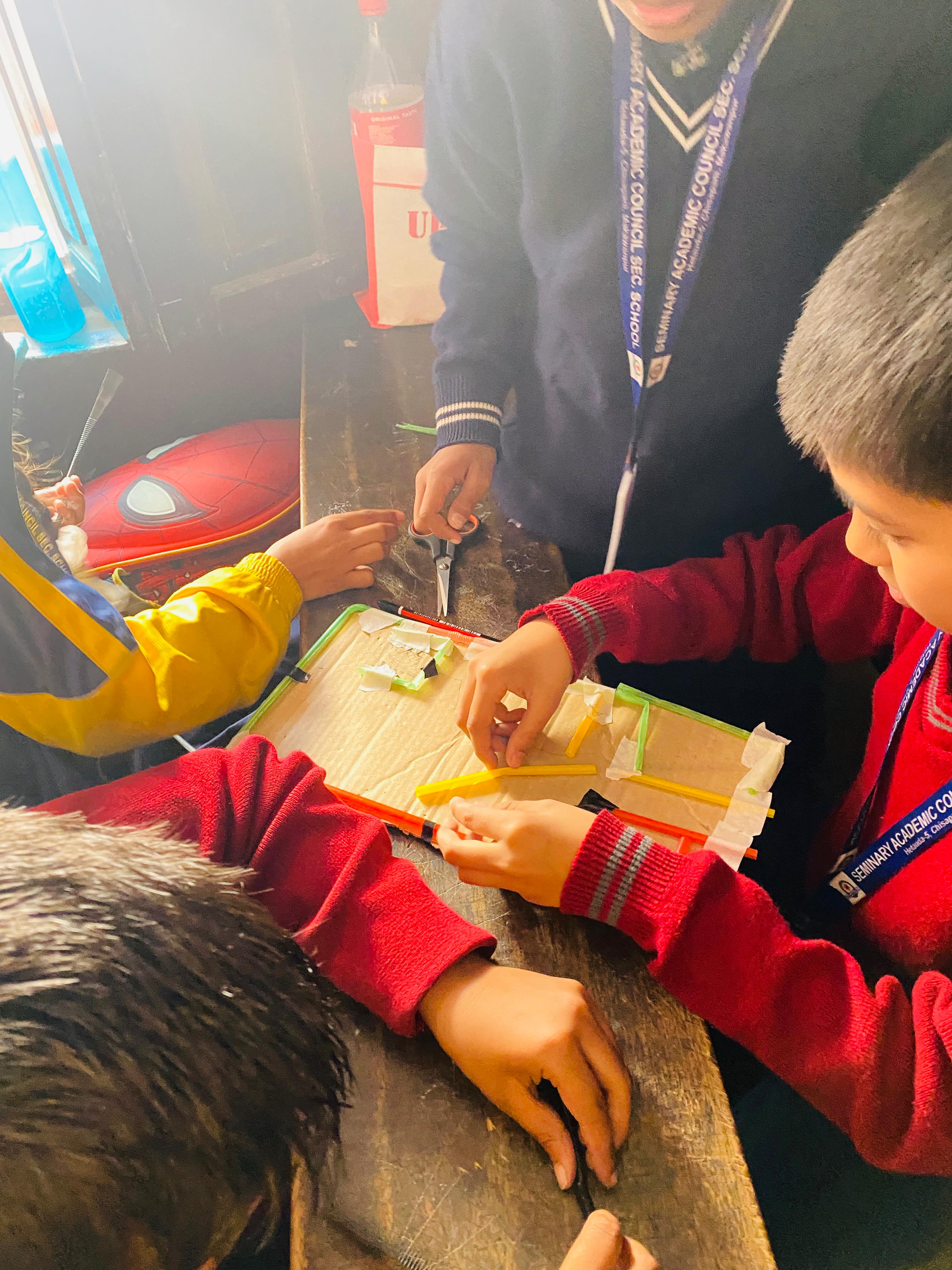
Join the movement to spark curiosity in children.Join us
Help children fall in love with learning — and grow while you do.
